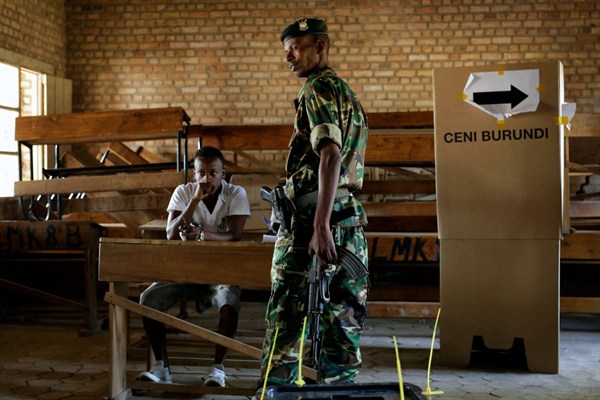The crisis that first unfolded in Burundi in April when President Pierre Nkurunziza announced his bid for a third term entered a new phase last week, as an unidentified armed group clashed with the army in the north of the country near the Rwandan border. Amid rumors of Rwanda supporting the rebels, regional tensions mounted. At the same time, a new, self-declared National Council established by Burundian exiles and opponents of Nkurunziza emerged as a new form of political resistance to his efforts to hold onto power despite international condemnation and widespread protests at home.
Yet while Nkurunziza’s opponents organized, the government continued to push through its electoral agenda, only marginally altered by demands of delay from the East African Community (EAC). The violence that led up to and accompanied Tuesday’s election suggests that the crisis’ regional repercussions may be inevitable.
The armed group that surfaced in Kayanza in northern Burundi last week prompts several questions. First, who are the rebels, where do they come from and who is supporting them? And second, what are their objectives? One of the Burundian generals who participated in the coup attempt on May 13, Leonard Ngendakumana, has claimed responsibility for the attack, which means it is plausible that the group includes soldiers who deserted from the army after the coup. Yet, there are also persistent rumors of Rwandan involvement in the rebel force, including training and financing of both Burundian and Rwandan soldiers on the Rwandan side of the border.

